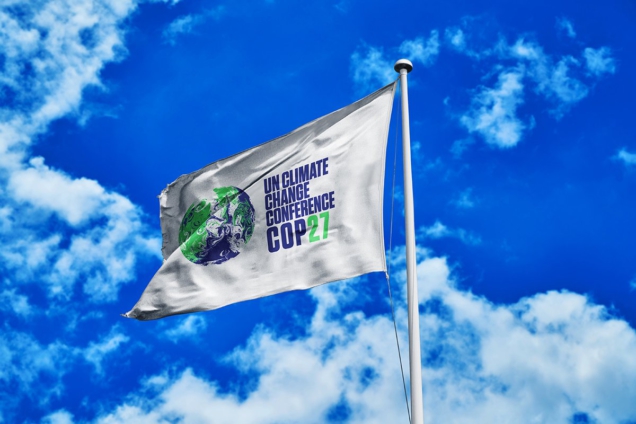The International Capital Market Association (ICMA), which sets the rules in the bond market, has proposed plans for countries hit by natural disasters caused by climate change to automatically freeze debt payments.
The introduction of new 'climate resilient debt clauses,' or CDRCs, aims specifically at low-income countries affected by disasters such as drought, flooding, and hurricanes.
Governments in such countries can use sovereign bonds to raise funds on global capital markets.
The mechanism will allow African countries on the verge or in the throes of a debt crisis to pause debt payments for a maximum of two years in order to free up cash flow to combat climate disasters.
Mr Samaila Zubaru, President and Chief Executive of Africa Finance Corporation, stated on Wednesday, November 9, 2022, that adaptation must be a priority for the continent, but it puts additional strain on Africa's current infrastructure needs.
He said, there is a great need in Africa and that, the infrastructure deficit is estimated to be $2.3 trillion.
"If you factor in the need to climate-proof and build resilient infrastructure, it becomes about $3 trillion.”
On the same day that many African delegates sought opportunities to make their cases heard, a group of over 85 African insurers unveiled the African Climate Risk Facility (ACRF) to assist the continent's most vulnerable communities in climate-proofing.
The commitment will protect 1.4 billion people from floods, droughts, and tropical cyclones by providing $14 billion in climate risk insurance to African sovereigns, cities, aid agencies, and non-governmental organizations (NGOs) through 2030.
Both measures will go a long way toward closing the continent's climate risk financing gap, as rich nations continue to dismiss demands for compensation for countries suffering "loss or damage" as a result of global warming.
Experts believe that if African borrowers can use the newly introduced CDRCs to avoid sovereign defaults while dealing with the aftermath of their latest natural disaster, it will benefit not only affected populations but also their global creditors.
On November 14, a panel of speakers from the private, public, and civil society sectors will discuss solutions to commodity-driven deforestation and highlight efforts to better conserve and restore forests while improving farmer livelihoods.
They will also discuss current initiatives, such as the Agri-Commodity Sector Roadmap, the Forest Data Partnership, US government action, and others, as well as future challenges.
Latest Stories
-
Skytrain trial: Prof Ameyaw Ekumfi fails to appear in court over medical emergency
2 minutes -
The task before you is immense – Mahama to newly sworn-in NDPC members
2 minutes -
Lali x Lola appeals to Communication Minister over Boomplay issues
6 minutes -
Armwrestling Board meets CGI Basintale, sets roadmap towards sports development
11 minutes -
Greater Accra Market Association endorses AMA’s decongestion drive in Central Business District
17 minutes -
Tullow restarts oil drilling in Ghana
22 minutes -
Curttix reflects the hustle of life in new song titled ‘Paa o Paa’
30 minutes -
EXPLAINED: Thermal output rises, but $2.5bn debt to IPPs and fuel suppliers mounts
39 minutes -
EGL announces “gargantuan” price reduction dubbed “Cedis Apicki” promotion
53 minutes -
Strict supervision is key to driving traders off the street – Market queen
56 minutes -
Coastlines in danger even if climate target met, scientists warn
2 hours -
Tanzania president warns ‘meddling’ Kenyan activists
2 hours -
Feasibility studies for new national capital underway — Mahama
2 hours -
National trials loom large as Ghana sprinters chase World Championships qualifying mark
3 hours -
Former Spain, Liverpool goalkeeper Reina announces retirement
3 hours

